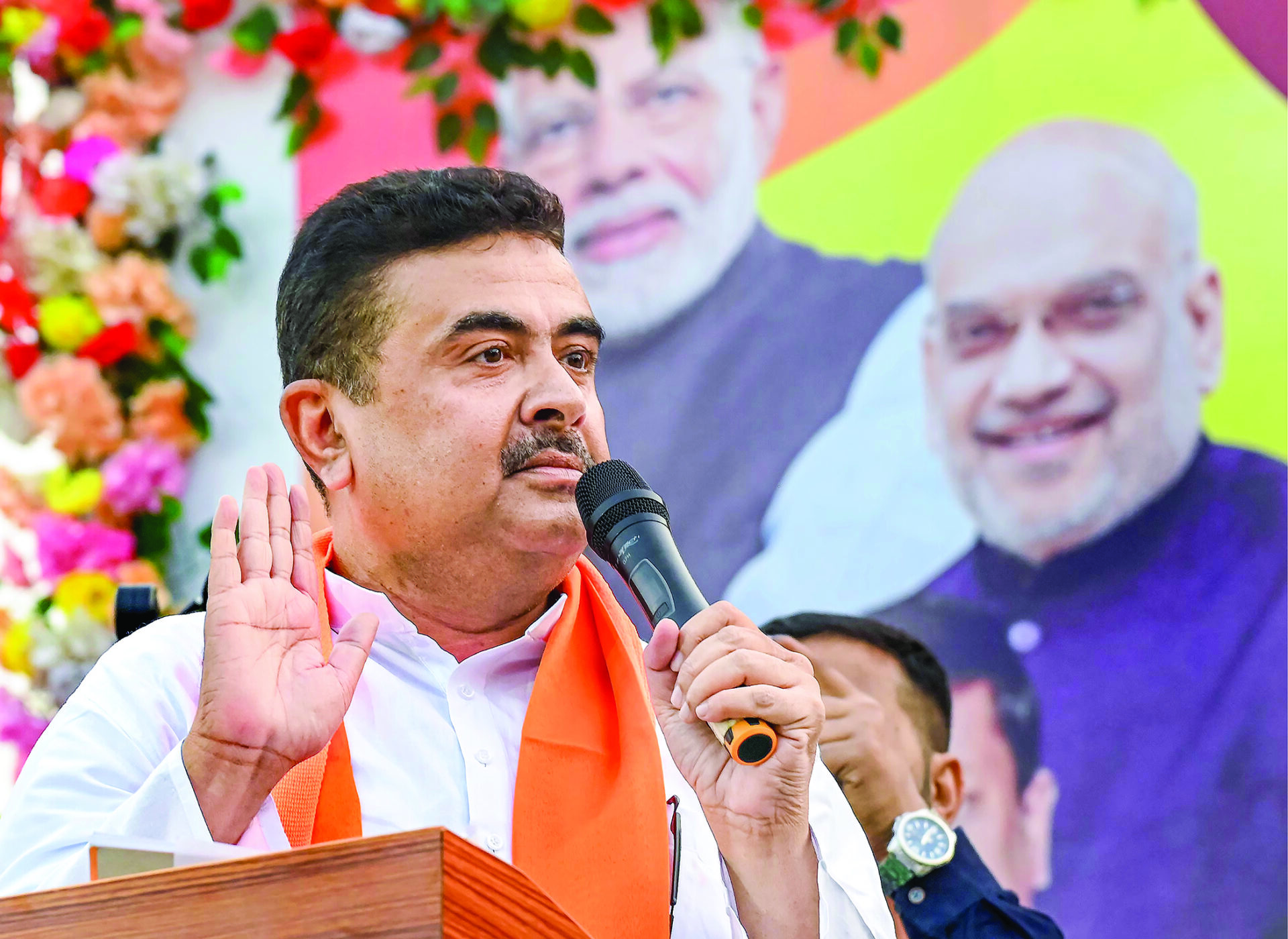NEW DELHI: One significant factor is the influence wielded by Suvendu Adhikari, who played a major role in candidate selection.
In the aftermath of the dismal performance in West Bengal, multitude of factors that contributed to the BJP performance, in which it could only win on 12 seats, down from 18 that it had won the last time, have started to surface, most of which have been shared by state party leaders, on and off the record.
One significant factor is the influence wielded by Leader of Opposition in West Bengal Assembly Suvendu Adhikari, who played a pivotal role in candidate selection.
Adhikari’s considerable sway, due to the trust that Prime Minister Narendra Modi and Home Minister Amit Shah had reposed on him, led to his decision on as many as 15 candidates out of the 42 contesting seats in Bengal. All his suggestions, that included moving former state president Dilip Ghosh from Medinipur to Burdwan-Durgapur were accepted blindly by the central leadership.
However, despite his considerable hold and freedom, the majority of candidates he backed failed to secure a victory. In his home turf of Tamluk and Kanthi too, the BJP candidates were engaged in a tough battle and were able to win with a lot of effort. However, in the other two seats of Jhargram and Medinpur, BJP lost.
Ghosh has come on record raising questions on who decided to move his seat at the last moment when he was assured by party president Jagat Prakash Nadda that he would contest from Medinipur only.
Party leaders told The Sunday Guardian that significant internal discord and factionalism existed in West Bengal, which further exacerbated the challenges.
Several leaders told this newspaper that party leaders were working against each other that led to undermining organizational efforts. For instance, a former organizational secretary of the BJP asked the workers not to work on the ground, further complicating the party’s efforts to consolidate its position.
Apart from Ghosh, Agnimitra Paul who lost the elections, Soumitra Khan and Jagannath Sarkar, who won, have openly come out and criticized the state party leaders in charge of the organization, calling them “incompetent” and raising questions on how people who have never won even a panchayat election were given the authority to decide the tickets.
Party leaders said that many of the leaders who were appointed as state secretaries and general secretaries lacked electoral experience, which hindered their ability to manage elections effectively on the ground. Some Members of Parliament (MPs) continued to neglect grassroots issues despite being made aware of these, further alienating constituents.
According to a secretary level functionary, inaccurate information was relayed to the central leadership, obscuring the true state of affairs on the ground. In many places there was no booth presence even before the polls had started, but ground leaders continued sending reports stating that everything was good.
He pointed out that the BJP’s handling of the Sandeshkhali incident failed to resonate with voters as the party was expecting. While state leaders became “obsessed” with this, other pressing concerns such as alleged land grab by TMC leaders was overlooked by the BJP strategists.
Moreover, the party’s approach to inducting turncoats, termed the “washing machine factor,” created a narrative perception among the voters and party cadre.
The controversial induction of Arjun Singh did not go down well. Despite Singh’s questionable track record, he was given a prominent position within the party. This move, which was backed by Suvendu Adhikari, undermined the BJP’s credibility.
Additionally, the BJP’s inability to counter narratives propagated by TMC, particularly regarding the Citizenship Amendment Act (CAA), proved detrimental. While the Trinamool Congress (TMC) was successfully able to stoke fears surrounding CAA, the BJP failed to assuage concerns and dispel misinformation. Furthermore, the TMC’s narrative regarding the cessation of funds for welfare schemes like MGNREGA and PM Awas Yojana percolated on the ground, further eroding the BJP’s support base.

